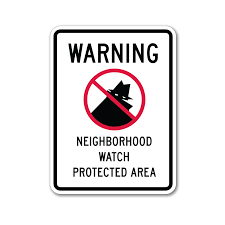Empowering Communities: The Importance of Neighborhood Watch Programs
Neighborhood watch programs have long been a cornerstone of community safety initiatives across the country. These programs bring residents together to create a network of vigilant eyes and ears, working in collaboration with local law enforcement to prevent crime and ensure the well-being of their neighborhoods.
The Role of Neighborhood Watch
Neighborhood watch programs empower residents to take an active role in protecting their communities. By fostering a sense of unity and shared responsibility, these programs serve as a powerful deterrent against criminal activities such as vandalism, theft, and burglaries. Members are encouraged to report suspicious activities promptly, allowing law enforcement to respond swiftly and effectively.
Building Stronger Communities
Participating in a neighborhood watch program not only enhances safety but also strengthens the bonds within the community. Residents get to know their neighbors better, creating a support system that promotes trust and cooperation. By working together towards a common goal of creating a safer environment, neighbors forge lasting relationships that extend beyond crime prevention efforts.
Educating and Empowering Residents
Neighborhood watch programs provide valuable resources and training to residents on crime prevention strategies, emergency preparedness, and effective communication techniques. Through workshops, meetings, and outreach initiatives, members gain the knowledge and skills needed to identify potential risks and respond appropriately in times of need.
A Call to Action
As communities face evolving challenges related to safety and security, the role of neighborhood watch programs becomes increasingly vital. By joining or establishing a neighborhood watch group in your area, you can play an active role in safeguarding your community and creating a more secure environment for all residents. Together, we can make our neighborhoods safer places to live, work, and thrive.
5 Key Strategies for an Effective Neighborhood Watch Program
- Get to know your neighbors and build a sense of community.
- Establish communication channels like a neighborhood watch group chat or email list.
- Be observant and report any suspicious activities to local authorities.
- Organize regular meetings to discuss safety concerns and share information.
- Work together to implement security measures like proper lighting and home security systems.
Get to know your neighbors and build a sense of community.
Building a strong sense of community starts with getting to know your neighbors. By fostering relationships and establishing trust with those who live nearby, you not only create a support system but also enhance the effectiveness of your neighborhood watch efforts. Knowing who belongs in your community and being familiar with regular routines can help identify suspicious activities more easily. Building a sense of camaraderie among neighbors not only promotes safety but also creates a welcoming environment where everyone feels valued and connected.
Establish communication channels like a neighborhood watch group chat or email list.
Establishing communication channels, such as a neighborhood watch group chat or email list, is a crucial tip for enhancing the effectiveness of a neighborhood watch program. These platforms provide a direct line of communication among residents, enabling quick sharing of information about suspicious activities, safety tips, and emergency alerts. By fostering real-time communication and collaboration, neighborhood watch members can stay informed and coordinate efforts more efficiently, ultimately creating a stronger and more vigilant community network dedicated to keeping the neighborhood safe.
Be observant and report any suspicious activities to local authorities.
Being observant and proactive is a crucial aspect of participating in a neighborhood watch program. By staying vigilant and promptly reporting any suspicious activities to local authorities, residents play a key role in preventing crime and maintaining the safety of their community. Whether it’s noting unfamiliar individuals loitering in the area or unusual behavior that raises concern, every observation matters in helping law enforcement address potential threats effectively. By working together and staying alert, neighborhood watch members contribute significantly to creating a secure environment for everyone in the neighborhood.
Organize regular meetings to discuss safety concerns and share information.
Organizing regular meetings within a neighborhood watch program is a crucial step in fostering a strong sense of community and enhancing safety efforts. These gatherings provide members with a platform to openly discuss safety concerns, share valuable information, and strategize on proactive measures to address potential risks. By coming together regularly, residents can stay informed, build trust among neighbors, and strengthen their collective ability to keep their community safe and secure. Communication is key in maintaining an effective neighborhood watch program, and regular meetings serve as a cornerstone for collaboration and empowerment among residents dedicated to creating a safer environment for all.
Work together to implement security measures like proper lighting and home security systems.
Working together to implement security measures such as proper lighting and home security systems is a crucial aspect of a successful neighborhood watch program. By ensuring that residential areas are well-lit and equipped with effective security systems, residents can create a safer environment that deters criminal activities. Proper lighting not only enhances visibility but also reduces hiding spots for potential intruders. Additionally, home security systems provide an extra layer of protection, alerting residents and authorities to any suspicious behavior. By collectively investing in these preventive measures, neighborhood watch members can proactively safeguard their community and promote a sense of security among residents.

